As an IBS dietitian I am always reading up on the latest IBS research. On Instagram @AndreaHardyRD, I talk all about lactose intolerance in IBS-D.
Lactose intolerance in IBS-D – is it inevitable?
The short answer – nope!
Lactase is the enzyme that is needed to break down lactose – the naturally occurring sugar in dairy products. 🥛🧀 Some people don’t make enough lactase, which means they can’t properly digest and absorb lactose in the small intestine.
Lactose malabsorption vs. lactose intolerance – not the same thing! You may be thinking that these two concepts sound VERY similar, but they do have one major difference – symptoms! 💩
◾ Lactose malabsorption (LM) – this is when lactose fails to be digested and/or absorbed in the small intestine. Some people will notice this based on how they feel, while others might not notice at all!
◾ Lactose intolerance (LI) – this is when someone with lactose malabsorption has symptoms such as bloating, abdominal pain, and diarrhea that occur after ingesting lactose
In IBS patients, lactose is a fermentable carbohydrate (ie. a FODMAP) that can commonly impact symptom severity, but it doesn’t mean it will impact ALL IBS patients across the board.
One study in a small group of IBS-D patients found that lactose intolerance symptoms were more common in those with IBS-D than in healthy controls who had lactose malabsorption. Furthermore, about 40% of IBS-D patients were categorized with LM, but not LI – so cool to see that these patients can potentially consume lactose without feeling awful!
So why do some of these patients present with symptoms while others don’t? There do appear to be some other factors that could potentially influence lactose intolerance in IBS. In this particular study, IBS-D patients who had symptoms of lactose intolerance also had higher levels of anxiety than their counterparts who had lactose malabsorption without the symptoms. This has me wondering the role visceral hypersensitivity plays in symptom perception when it comes to LM.
Putting it into practice: While the study did not address how focusing on anxiety management might reduce symptoms of LI, it highlights the importance of a multifaceted approach to IBS care looking at both food and the gut-brain axis!
doi: 10.1111/apt.12582

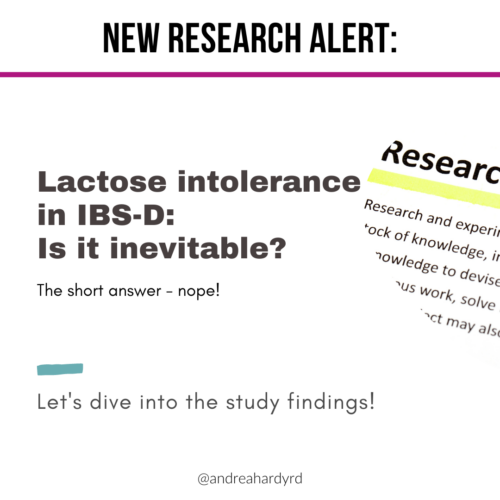
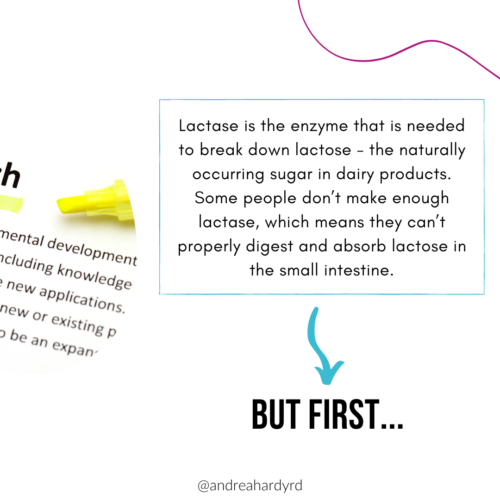
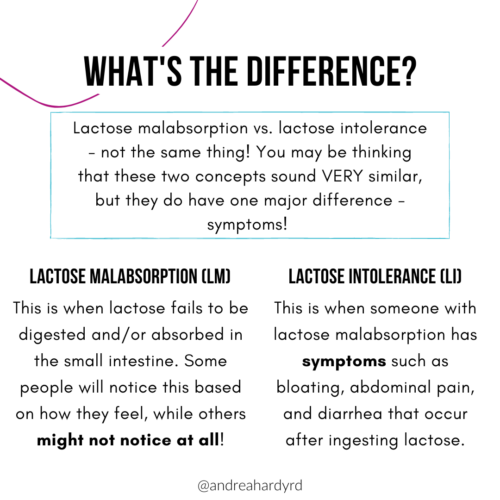
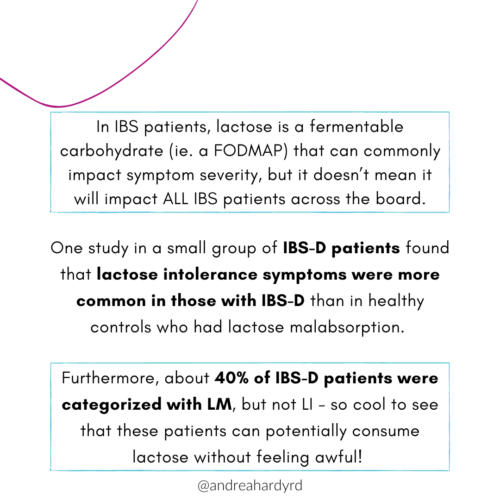
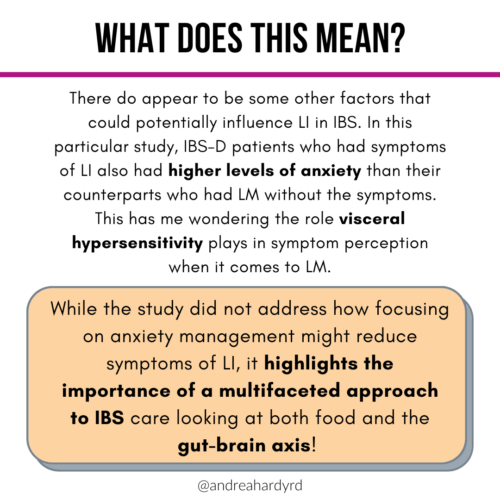

Recent Comments